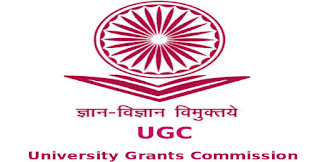TERRIBLE SITUATION OF CONTRACT ASSISTANT PROFESSORS IN HIGHER EDUCATION
Mukesh Devrari
Universities in India appoint Assistant Professors
in four categories. However, the categories are not defined by UGC itself. They
have been created in the policy gaps of UGC regulations over the years. First,
universities appoint permanent Assistant Professors, who have a job for life.
Second, universities appoint Assistant Professors on full salary as fixed by the government but on a yearly contract basis. Thirdly, universities also appoint
Assistant Professors on a fixed salary of 35000 or 25000 per month on yearly
contracts. It is discretionary for universities. Fourthly,
Universities also appoint Assistant Professors on per class basis with a
ceiling of 25000 per month. Some universities pay 500 rupees per class, others
pay 1000 rupees. DAV PG College in Dehradun pays 300 rupees per class to the
faculty members of all self-finance departments. Minimum qualification for the
post of Assistant Professors as per UGC regulations is UGC - NET or PhD degree.
In the first three categories, universities ensure that candidates fulfil minimum eligibility. University administrations in India do not believe in the universal dictum of ‘equal pay for equal work’. It should be applied to our educational institutions, but this is too much to ask for in this feudal country. This is the discrimination of first degree, but this is not an only kind of discrimination.
In the first three categories, universities ensure that candidates fulfil minimum eligibility. University administrations in India do not believe in the universal dictum of ‘equal pay for equal work’. It should be applied to our educational institutions, but this is too much to ask for in this feudal country. This is the discrimination of first degree, but this is not an only kind of discrimination.
For the post of Associate Professor, candidates
require eight years of teaching experience as well as PhD in a relevant subject.
Assistant Professors teaching on yearly contracts are not eligible for the post
of the Associate professor as their teaching experience is not considered a
teaching experience, if their salary is less than their regular counterparts. UGC
through its regulations ensured a life time slavery and subservience for
contractual faculty members who have just started their academic career.
If Assistant Professors are not paid full salary,
then they are wasting their career in teaching institutions. It is not a big deal
that in this hungry and naked nation, money is a primary criterion for seeing
things rather than all other things in this particular context. Nature of
services is the same for the contractual and regular faculty members in all our
universities. Both share an equal amount of teaching and non-teaching workload. In
most cases, contractual faculty members have more work load as it is easier to
ensure their pliability by mining their job insecurity for their bosses. At
least the sloths sitting at the top at UGC must show a minimum sense of justice
and end this discrimination.
Many universities in India start a department
without the requisite number of sanctioned faculty positions. But to run a
department, universities appoint contractual faculty members and totally rely
on them. Surprisingly universities argue that they cannot pay equal salary to
their contractual faculty members because they are not appointed against
sanctioned positions. By this logic, such departments must be closed down. How
can universities start a department without sanctioned faculty positions in the
first place? This is one terrible argument, which can be considered symptomatic
of perverted logic used by people who are running our universities to deny the most basic right of an individual.
There is a plain and simple tendency in India which is
reflected in the general compartments of our trains. People who board trains
early sometimes try to lock the door from inside so that others could not enter
the coaches. As all of us can see across the country, the biggest apologists
and propagandists of privatization are those individuals who have a job for
life.
There is little hope that things will improve in
times to come.
end.




Comments
Post a Comment